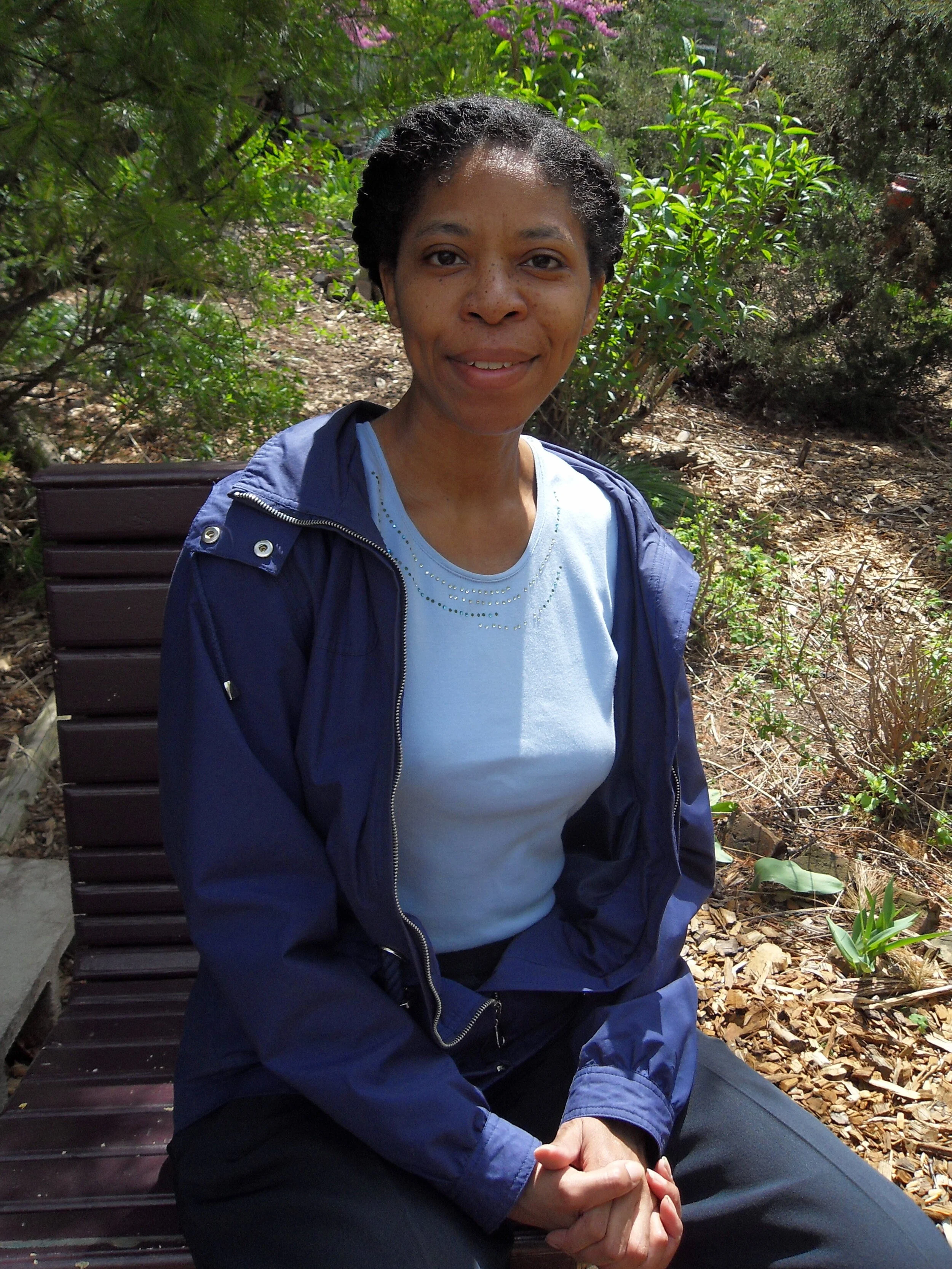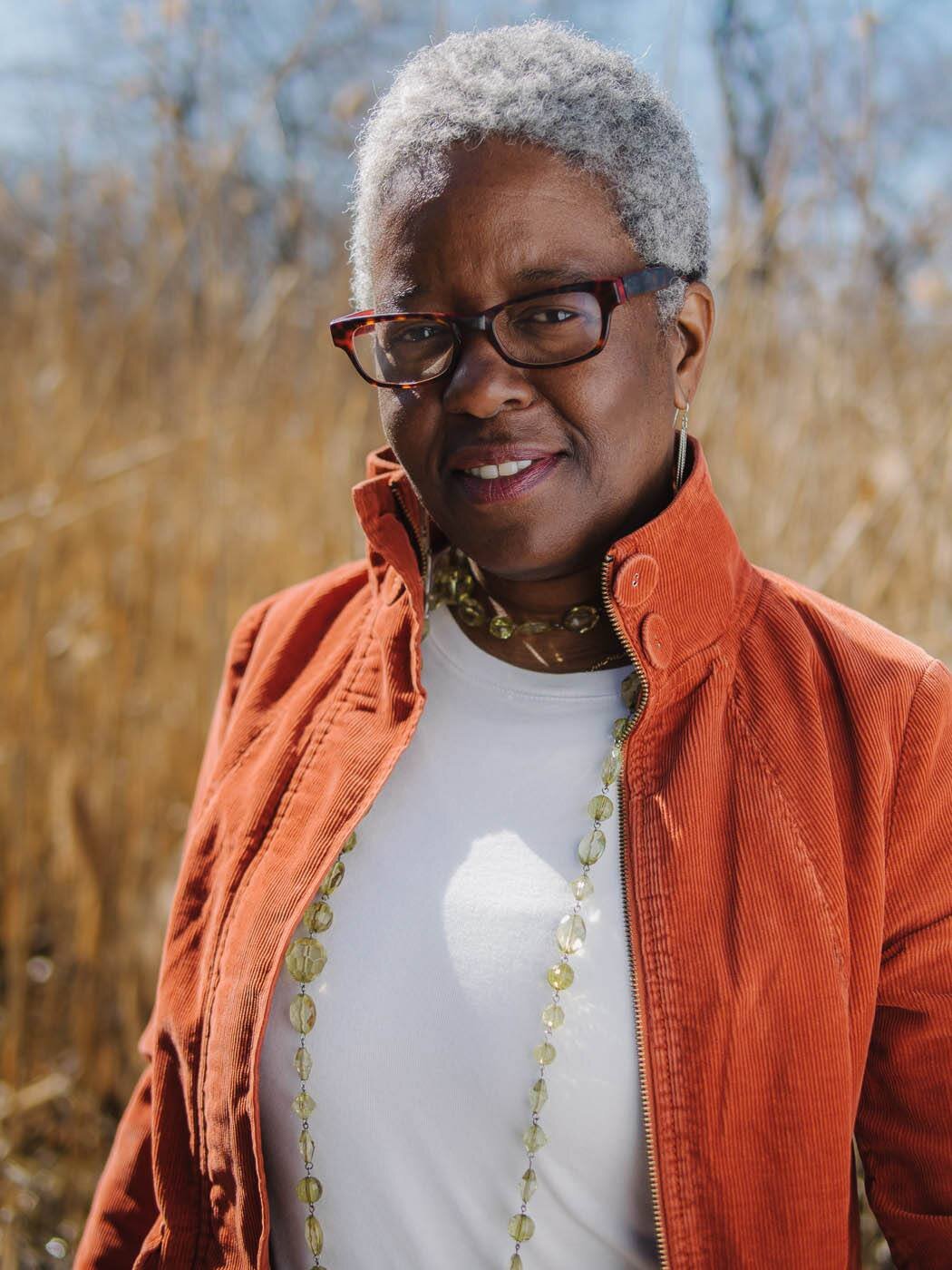Stewards: Community Gardens as Safe Havens with Traci Nottingham, Sheryll Durrant and Katie German
PHOTO: FoodShare Toronto
As we highlighted in our most recent Snapshot, community gardens are a type of public space that help to address a wide range of issues, including building climate resiliency into urban settings and fighting food insecurity at the community level. To learn more about the potential of community gardens, including their role in creating safe space, we spoke with Traci Nottingham, Gardener at Prospect Heights Community Farm in Brooklyn, New York; Sheryll Durrant, Garden Manager at Kelly Street Garden in the Bronx, New York; and Katie German, Director of Programs at FoodShare Toronto, who highlighted the ability of community gardens to serve as “safe havens” in cities.
About Traci and her work
Raised in Brooklyn by rural Southern parents Traci Nottingham (she/her) has been growing all sorts of plants since early childhood. In 1997 she was a founding member of Prospect Heights Community Farm (a volunteer driven community garden) and has served as one of the garden's three Master Gardeners since 2004. Traci Is a licensed architect in Brooklyn, NY with her practice primarily focusing on residential and light commercial Architecture & Interiors projects and Landscape design.
Her thoughts on safety
For Traci, community gardens are a model of success in the conversation about safety in public spaces because they are (ideally) shaped by and for the communities who use them. This element of self determination not only impacts the design of these spaces, but also extends to the rules or codes of conduct that community gardens shape for themselves to allow folks to feel safe and welcome.
While community gardens operate with the collective in mind, they also offer individuals a space to make their own, which is an important opportunity for many who live in dense cities without access to a balcony or a backyard. In the context of increasing development in cities, the resiliency of these gardens, and the communities who advocate on their behalf, are a safeguard for access to space for city dwellers—whether it’s for growing food, creative self-expression, or a peaceful escape.
“That’s the beauty of community gardens. For the people who use them, they can be freeing. It’s not just a place to grow your own vegetables—although for many that’s a big part of it—but ultimately the gardens give people more input over the use of space, allowing them to shape it according to their own vision. Here in Brooklyn, you can’t walk into Prospect Park and start tilling the soil.”
PHOTO: Keka Marzagao
About Sheryll and her work
Sheryll Durrant (she/her) is an urban farmer, educator and food justice advocate. She is currently the Resident Garden Manager at Kelly Street Garden, and Food and Nutrition Coordinator for New Roots Community Farm managed by International Rescue Committee (IRC) – both in the Bronx. Prior to that, she served for 7 years as director of the urban farm and garden program for Sustainable Flatbush in Brooklyn. Her work has included developing community-based urban agricultural projects providing expertise and technical assistance for supportive housing garden programs.
Her thoughts on safety
Sheryll echoes the need for community-informed design and decision-making in public spaces like community gardens. She points to the tensions that arise when top-down approaches are imposed on local communities by architects and designers. The result is often a “highly-curated” space that fails to serve the needs of its users. A lack of accessible design for example, means that the space is not inclusive of everyone’s needs, and thus impacts their feelings of safety and belonging.
This need for belonging at the street level is at the root of many contemporary community gardens in New York City, which emerged in response to the local government’s neglect of racialized neighbourhoods during the 1970’s. The Kelly Street Garden, where Sheryll is a leader, exists thanks to the grassroots efforts of community members during the time when “the Bronx was burning”, replacing vacant lots full of rubble with vital green spaces for respite and healing.
“I’m a community gardener, so for me, the main ingredients for safe public spaces are greenery and light. Where I live in the South Bronx, it’s a highly urban environment, and to have little pockets of green space amid all the concrete and steel is an important source of respite and healing. There are many times when I open the garden and there will be people just sitting and staring. Maybe you don’t want to plant food or work in the garden, you just want to come sit and enjoy? That’s safe space—where people feel that they can just come and be.”
About Katie and her work
Katie German (she/her) works as the Director of Programs at FoodShare Toronto, a charitable organization that partners with communities to support gardens, markets, and urban agriculture projects across the city. These include the School Grown program which turns underutilized schoolyards into productive urban farms, and Flemo Farm which is converting a hydro corridor into a market garden, giving access to BIPOC growers in the neighbourhood to run their own farm businesses. FoodShare envisions a Toronto where all people can feed themselves, their loved ones, and their communities with dignity and joy. Her community organizing work focuses on food justice, wealth redistribution, and ending the school to prison pipeline.
Her thoughts on safety
Katie highlights the need to address the lack of safety afforded to Black, Indigenous and People of Colour (BIPOC), low-income, queer and disabled communities in urban agriculture spaces. For those communities to use these community gardens to heal trauma, FoodShare has formalized policies that governs how the organization interacts with police when it comes to community programs and spaces. Their guidelines state that FoodShare will not invite police to their own events and they will support staff who ask a police officer to leave a community space. Katie’s own personal relationship to safety is conversely deeply informed by her whiteness – the way she interacts with spaces is based upon an acknowledgement that her safety is prioritized.
“My own relationship between safety and space is always 100% dictated by my positionality as a white person. Moving through the city, my whiteness works to keep me safe, and affords me peace in that space. It’s imperative that white people begin (or continue to) call this out, address it in real time, and use our bodies as a way to make spaces safer for others. In urban agriculture spaces, this can mean knowing when to leave a space, to create a safer space for BIPOC growers.”
Follow Prospect Heights Community Farm on Facebook @ProspectHeightsCommunityFarm or on Instagram @phcfarm
Follow Sheryll and the Kelly Street Garden on Instagram @sherylldurrant and @kellystgreen, and on Facebook @kellyst.garden
Follow FoodShare’s work on Twitter at @FoodShareTO and Katie at @katie_german.



